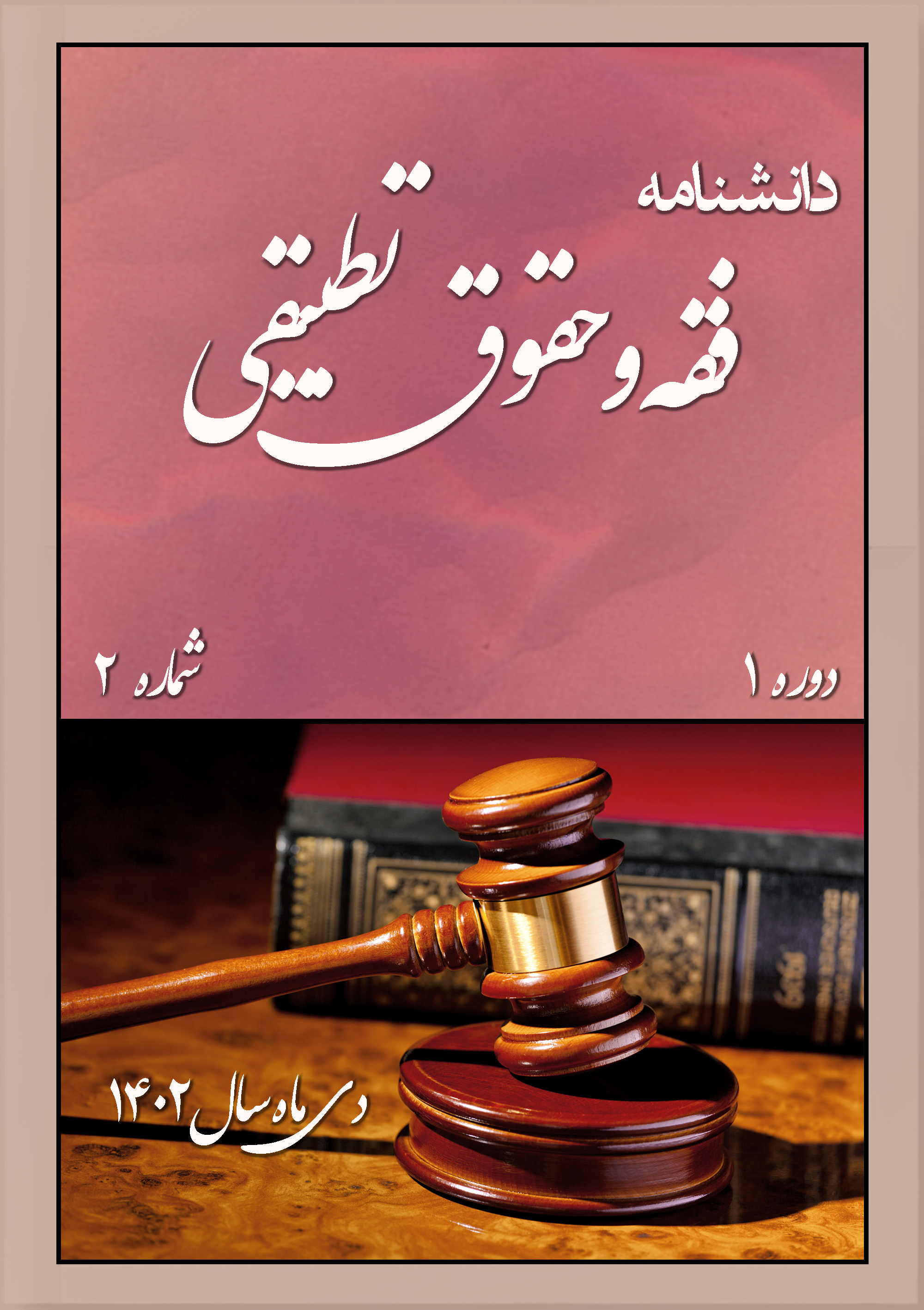A Comparative Study of Absurd Penalty Clauses in Iran and France Law
Keywords:
absurd, clause, France, penaltyAbstract
This study, using a descriptive-analytical method, conducts a comparative analysis of absurd (irrational) penalty clauses in Iranian and French law. Undoubtedly, rationality is a fundamental feature of all legal acts. Sometimes the acts and omissions of legally competent individuals are deemed, from a customary perspective, to lack a rational purpose, and are described by reasonable people as irrational or absurd. Absurdity is not exclusive to contracts of sale but also applies within the scope of commutative contracts, ancillary contractual conditions, and unilateral juridical acts. The inclusion of absurd conditions in contracts, such as a penalty clause where there is no rational or customary proportionality between the stipulated contractual damages and the actual damages, can be considered an example of absurd contractual clauses. In Iranian law, the legislature has made no reference to absurd conditions, and there is disagreement among jurists and legal scholars regarding their legal status. Some hold that such conditions are valid, while others consider them absolutely void. In French law, juridical acts deemed absurd in the sense recognized in Iranian law do not exist; however, Articles 1152, 1230, and 1231 of the French Civil Code and Clause 5 of Article 1231 of the French Law of Obligations address this type of clause and permit judicial control over penalty clauses, allowing the judge to increase or decrease the amount of an excessively high or unreasonably low penalty.
Downloads
References
Ahmadzadeh, S. A., & Rezaei Davani, M. (2018). The Concept and Status of Unfair Terms in European Law and Iranian Substantive Law with an Approach to Justice and Equity in Imami Jurisprudence. Quarterly Journal of Comparative Research on Islamic and Western Law, 5(3), 1-34.
Amid, H. (2013). Farhang-e Farsi-ye Amid (Amid's Persian Dictionary). Ashja.
Benabent, a. (2019). droit des obligations. lgdj.
Bozorgmehr, A. A. (2017). A Comprehensive Commentary on Comparative Law of Obligations: Advanced Civil Course. University of Justice.
Bozorgmehr, A. A., & Mehrani, G. (2016). Reforms in the French Law of Obligations. University of Justice.
Flour, J., Aubert, J.-L., & Savaux, E. (2015). Droit civil ; les obligations t. 3; le rapport d'obligation. Dalloz.
Harati, M. (2022). The Legal Nature of the Penalty Clause and Its Modification in Iranian and French Law. 19(74), 135-157.
Hatami, A. A., & Sadeghi, A. (2012). Unjust Penalty Clauses. Quarterly Journal of Knowledge and Legal Research(2), 59-104.
Ja'fari Langaroudi, M. J. f. (2015). Legal Terminology. Ganj-e Danesh.
Karimi, A. (1983). Imposed Conditions from the Perspective of the General Rules of Contracts. Journal of Legal Research(1), 75-83.
Katouzian, N. (2014). Preliminary Course on Civil Law: Legal Acts. Enteshar Publishing Company.
Kazempour, S. J. f. (2013). Strategies for Protecting the Weaker Party to a Contract. Majd.
Keshavarzi, M. (2017). Similarities and Differences Between the Civil Codes of Iran and France. Enteshar Publishing Company.
Maghsoudi, R. (2011). The Modification of Penalty Clauses and Their Results in French, English, and Iranian Law. Legal Research Journal, 2(2), 103-129.
Malekan, M. (2019). The Possibility of Invalidating Unfair Conditions with an Emphasis on Substantive Laws Islamic Azad University, Safadasht Branch]. Iran.
Mohaghegh Damad, S. M. (2016). General Theory of Conditions and Obligations in Islamic Law. Islamic Sciences Publishing Center.
Namvar, S., & Hasani, A. (2018). A Comparative Study of the Modification of Penalty Clauses in French and Iranian Law. 4(7), 11-23.
Nouri, M. A. (2019). Contracts and Contractual Obligations in General and Non-Contractual Obligations from the French Civil Code. Ganj-e Danesh.
Nouri Youshanlouei, J. f. (2017). French Legal Texts in the Civil Section. Kharsandi.
Oxford Advanced Learners Dictionary. (2001).
Pakbaz, S. (2023). Commentary on the French Civil Code. Mizan.
Puigelier, C. (2015). Dictionnaire juridique. Editions Larcier.
Sabbaghi Nadushan, M. (2016). A Reflection on the Rule-Making of the Invalidity of Imprudent Transactions with an Emphasis on the Verse Prohibiting the Unjust Consumption of Property. Quarterly Journal of Islamic Jurisprudence and Law Research(44), 57-78.
Sardooei Nasab, M., & Kazempour, S. J. f. (2011). Components of Unfairness of a Contract. Judiciary Legal Journal, 75(75), 37-73.
Shahidi, M. (2015). Conditions of the Contract. Majd.
Shamsollahi, M. (2021). Unfair Terms in Commercial Contracts with a Comparative Study of French Law. Bi-Quarterly Journal of Comparative Law(16), 209-238.
Simbar, R., & Nabidoust, T. (2022). The Criterion for Determining the Unfairness of Contractual Terms. Quarterly Journal of Legal Research(10), 135-156.
Downloads
Published
Submitted
Revised
Accepted
Issue
Section
License
Copyright (c) 1402 مصطفی محمودی هرندی (مترجم); سعید شریعتی فرانی; علیرضا انتظاری نجف آبادی (نویسنده)

This work is licensed under a Creative Commons Attribution-NonCommercial 4.0 International License.










